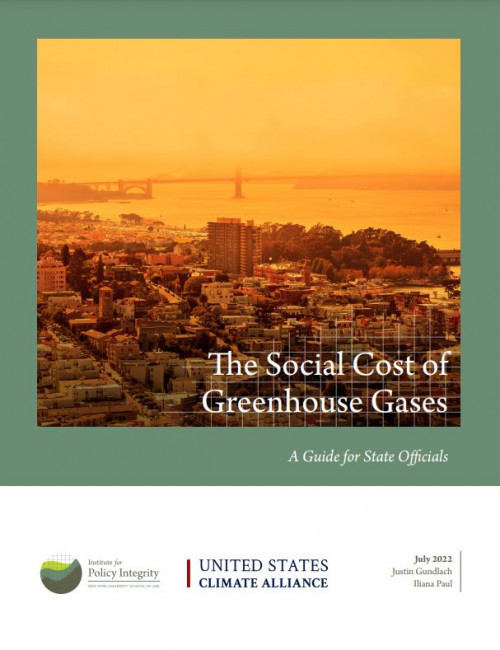As states step up on climate action, they need a way to weigh climate goals against other policy objectives. The social cost of greenhouse gases (SC-GHG) can help policymakers understand the costs and benefits of climate action and inaction. This new guide for state officials explains why the SC-GHG is a useful policy tool and how it can be applied.
It is a set of estimates of how much damage results, in monetary terms, from the emission of one additional metric ton of carbon dioxide (CO2), methane (CH4), or nitrous oxide (N2O). By indicating the monetary cost to society of releasing greenhouse emissions into the atmosphere, the SC-GHG makes it possible to say how worthwhile it would be to reduce or altogether avoid emitting activity—that is, to weigh the benefit of doing so against the costs.

